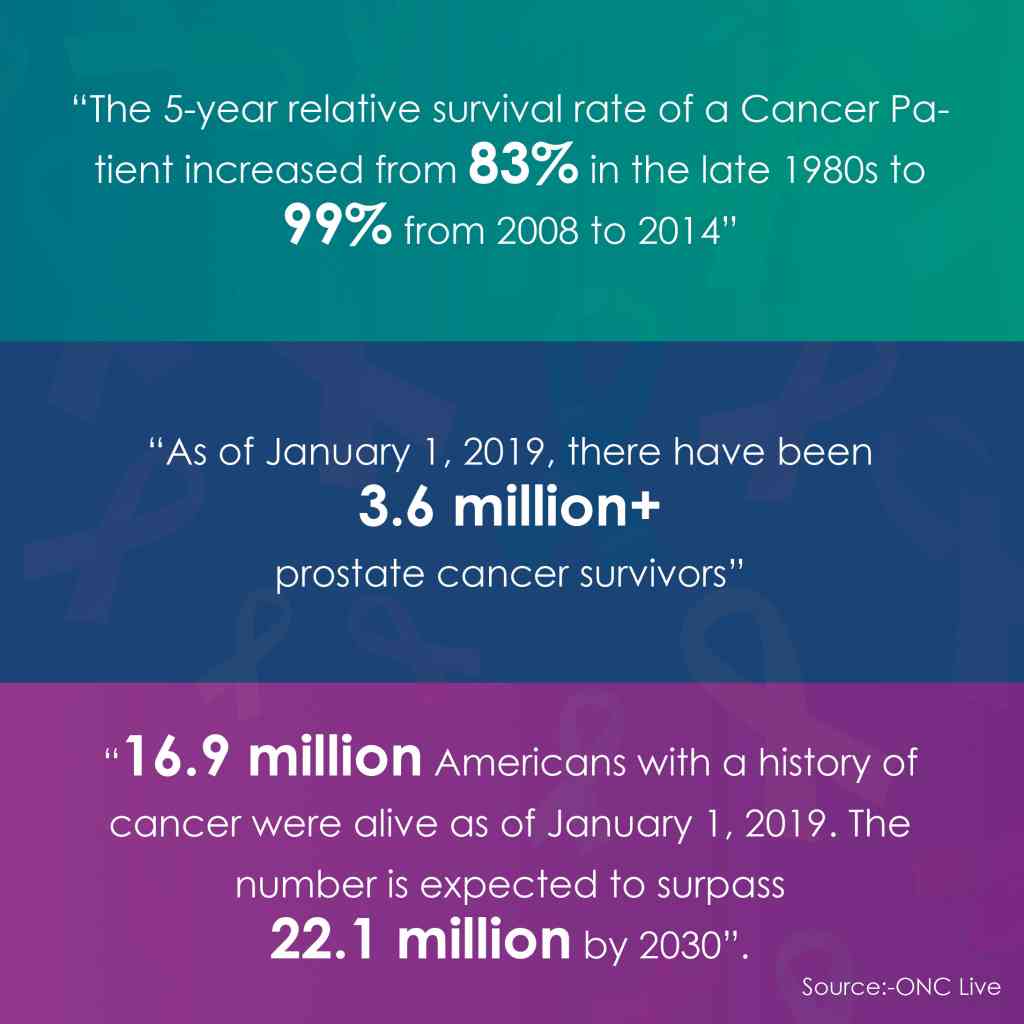Artificial Intelligence (AI) has been a prodigious prospect for the healthcare industry for a long time.
AI entails the collection of gargantuan amounts of unstructured data. Developers then need to figure out a way to design an algorithm to sift through all this data and make sense out of it. This exercise yields patterns that contain useful insights that influences doctors to chart out prognosis and researchers to identify mutations in cancer cells. These AI applications make up just the tip of the iceberg.
Yet, with science and technology evolving at an exponential rate in all these years, there aren’t many AI-driven technologies making an impact on the industry. Does that mean AI is nothing more than hype? The answer to this question requires retrospection.
How Far Have We Come?

The devastating effects of cancer need no introduction. The statistics above indicate that we are putting up an indomitable fight against the dreaded disease over the years. All of this has been possible because of our understanding of gene regulation and sequencing.
In 1971, President Richard Nixon, famously said that if we could put the man on the moon, we should be able to defeat cancer in our lifetime. He said this before the National Cancer Act was introduced. Yet, close to five decades later, we haven’t been able to conquer the disease.
On the bright side, the global Oncology effort has managed to decode close to 1000 genes that manifest in combinations to cause the different varieties of cancer.
The disease itself is an evolutionary engine with constant mutations taking place at the genetic level, in a cancer cell. Researchers are using another evolutionary engine, the immune system to combat it. This has led to the birth of branches like Immunotherapy and Epigenetic therapy which have delivered heart-warming statistics.
The Quest for More Effective Weapons
The Panacea for cancer may not be one single technology or clinical technique. The current state of prognosis for cancer shows how the collective efforts of medical imaging, cancer therapy, clinical trials and more are unifying to make it more effective.
AI can be one such tool that can be added into the standard arsenal that oncologists use today, to detect and treat cancer. The main reason why the war on cancer needs the magic touch of AI is because of the following reasons:
Data Processing Ability: AI is the ideal tool for oncologists to harness the potential of EHR systems. With the CMS gunning for interoperability, cancer researchers have the perfect opportunity to use a treasure trove of oncology data to extract patterns. Patterns deciphered by AI can give doctors insights about the best prognosis for individual cancer cases.
Time and Cost Savings in Clinical Trials: Thanks to the raw computing power of AI algorithms, clinicians can run simulations of clinical trials. This enables them to arrive at the results 30% faster compared to running clinical trials on cancer patients. It saves the ordeal of scheduling for patients with specific cancer types, thereby reducing the costs of the trials as well.
Cancer Imaging: One of the most powerful tools that oncologists currently have in the fight against cancer is radio imaging. When cancer cells are detected early, a patient has up to 90% chances of going into remission.
Unfortunately, the Extranodal Extensions (ENE) of tumours are difficult to detect, especially in areas such as the head and neck regions. An advanced form of AI, the Convolutional Neural Network Model (CNN) has improved the accuracy of cancer detection by a staggering 80%. The accuracy of AI in cancer detection makes it an invaluable tool.
Translational Oncology: Translational oncology is essentially the bridge between research and clinical trials. Cancer researchers rely heavily on ‘Omic’ data, which gives them the complete genetic profile of the patient. It enables them to predict genetic mutation in cancer cells.
Understanding the changes that happen in a cancer patient at a molecular level, before it even happens, enables them to develop precision medicine. Advanced AI models such as Deep Learning (DL) networks speed up the process of gene sequencing, saving valuable time for a cancer patient.
Clinical Decision Support: Correlating patient data with clinical trial records gives doctors the enhanced ability to test investigational drugs with an increased chance of success. There is no time lost due to the administration of clinical trials for the wrong type of cancer.
AI has the potential to be a critical tool in oncologic decision making since it helps find the ideal match for an experimental drug for cancer treatment. It also helps doctors deal with side effects, thanks to predictive analytics.
Parting Words
AI has not become a standard yet, owing to the high costs of utilization and the effort required in training it. There is however, plenty of evidence to suggest that it is the way forward for cancer research.
We will take a detailed look at what lies under the hood in AI systems currently used by Oncologists in part 2.
Latest posts by Puneeth Salian (see all)
- Healthcare Automation to Tackle Open Enrollment Challenges for Health Plans - October 31, 2022